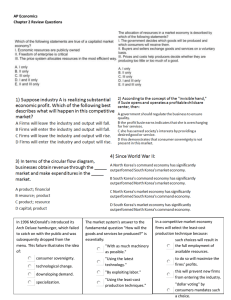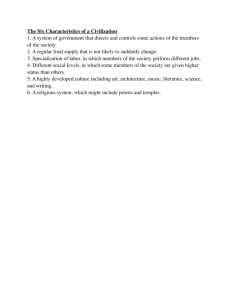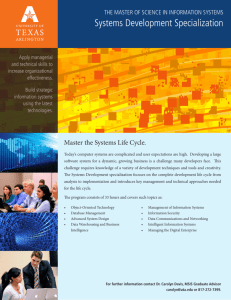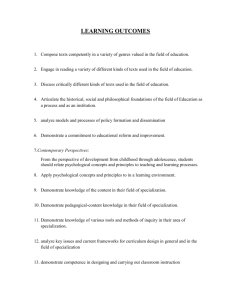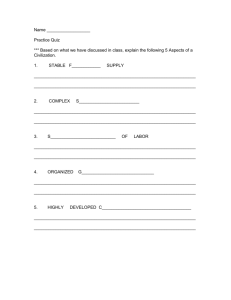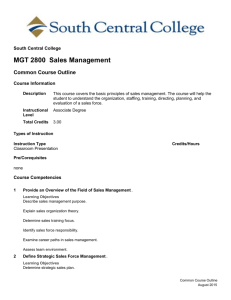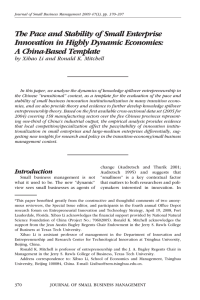Specialization, the Use of Money, and 5 Fundamental Questions
advertisement
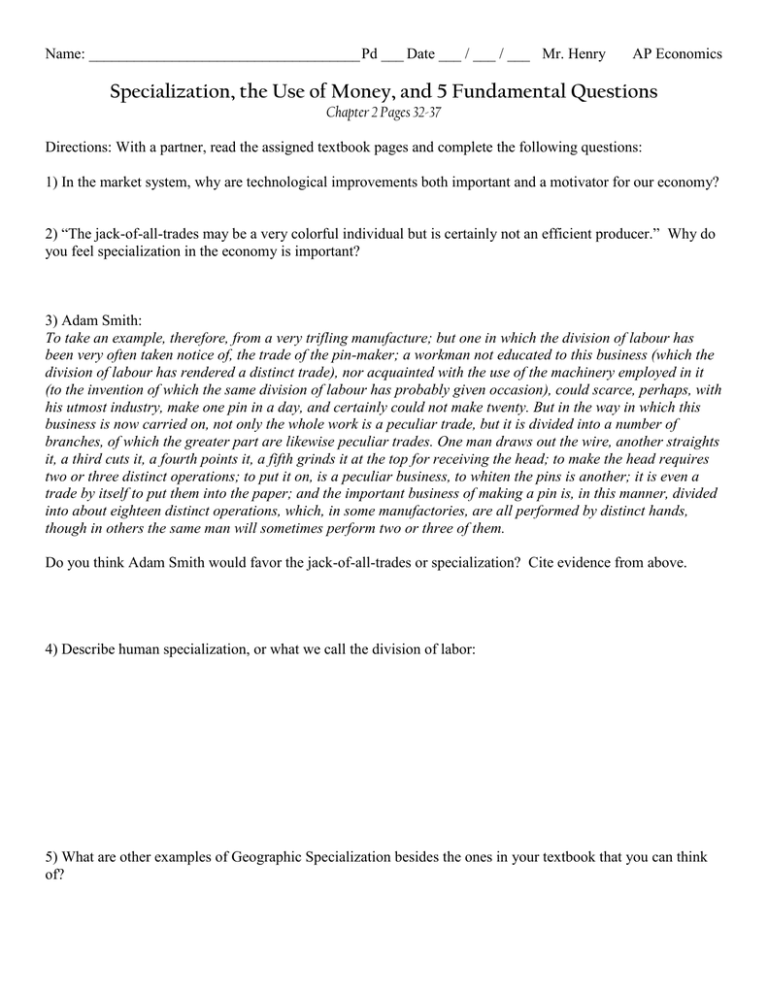
Name: ____________________________________ Pd ___ Date ___ / ___ / ___ Mr. Henry AP Economics Specialization, the Use of Money, and 5 Fundamental Questions Chapter 2 Pages 32-37 Directions: With a partner, read the assigned textbook pages and complete the following questions: 1) In the market system, why are technological improvements both important and a motivator for our economy? 2) “The jack-of-all-trades may be a very colorful individual but is certainly not an efficient producer.” Why do you feel specialization in the economy is important? 3) Adam Smith: To take an example, therefore, from a very trifling manufacture; but one in which the division of labour has been very often taken notice of, the trade of the pin-maker; a workman not educated to this business (which the division of labour has rendered a distinct trade), nor acquainted with the use of the machinery employed in it (to the invention of which the same division of labour has probably given occasion), could scarce, perhaps, with his utmost industry, make one pin in a day, and certainly could not make twenty. But in the way in which this business is now carried on, not only the whole work is a peculiar trade, but it is divided into a number of branches, of which the greater part are likewise peculiar trades. One man draws out the wire, another straights it, a third cuts it, a fourth points it, a fifth grinds it at the top for receiving the head; to make the head requires two or three distinct operations; to put it on, is a peculiar business, to whiten the pins is another; it is even a trade by itself to put them into the paper; and the important business of making a pin is, in this manner, divided into about eighteen distinct operations, which, in some manufactories, are all performed by distinct hands, though in others the same man will sometimes perform two or three of them. Do you think Adam Smith would favor the jack-of-all-trades or specialization? Cite evidence from above. 4) Describe human specialization, or what we call the division of labor: 5) What are other examples of Geographic Specialization besides the ones in your textbook that you can think of? 6) In the spring we will discuss more about the functions of money. Why does money serve an important function in our society and why is bartering inefficient? 7) Describe each of the Five Fundamental Questions: What will be produced? How will the goods and services be produced? Equation: Total Profits = Total Cost – Total Revenue Total Cost = Presource * Qresource and Total Revenue = Price * Qsold Table 2.1: If Bar Soap, Inc. sold 50 bars of soap daily at .25C each, would Bar Soap, Inc. continue to stay in business? Who will get the output? How will the system accommodate change? How will the system promote progress? Review Q’s: In 1996 McDonald's introduced its Arch Deluxe hamburger, which failed to catch on with the public and was subsequently dropped from the menu. This failure illustrates the idea of: consumer sovereignty. technological change. downsloping demand. specialization. The market system's answer to the fundamental question "How will the goods and services be produced?" is essentially: "With as much machinery as possible." "Using the latest technology." "By exploiting labor." "Using the least-cost production techniques." In a competitive market economy firms will select the least-cost production technique because: such choices will result in the full employment of available resources. to do so will maximize the firms' profits. this will prevent new firms from entering the industry. "dollar voting" by consumers mandates such a choice.
